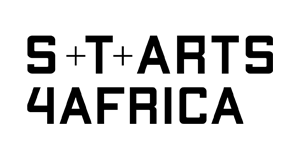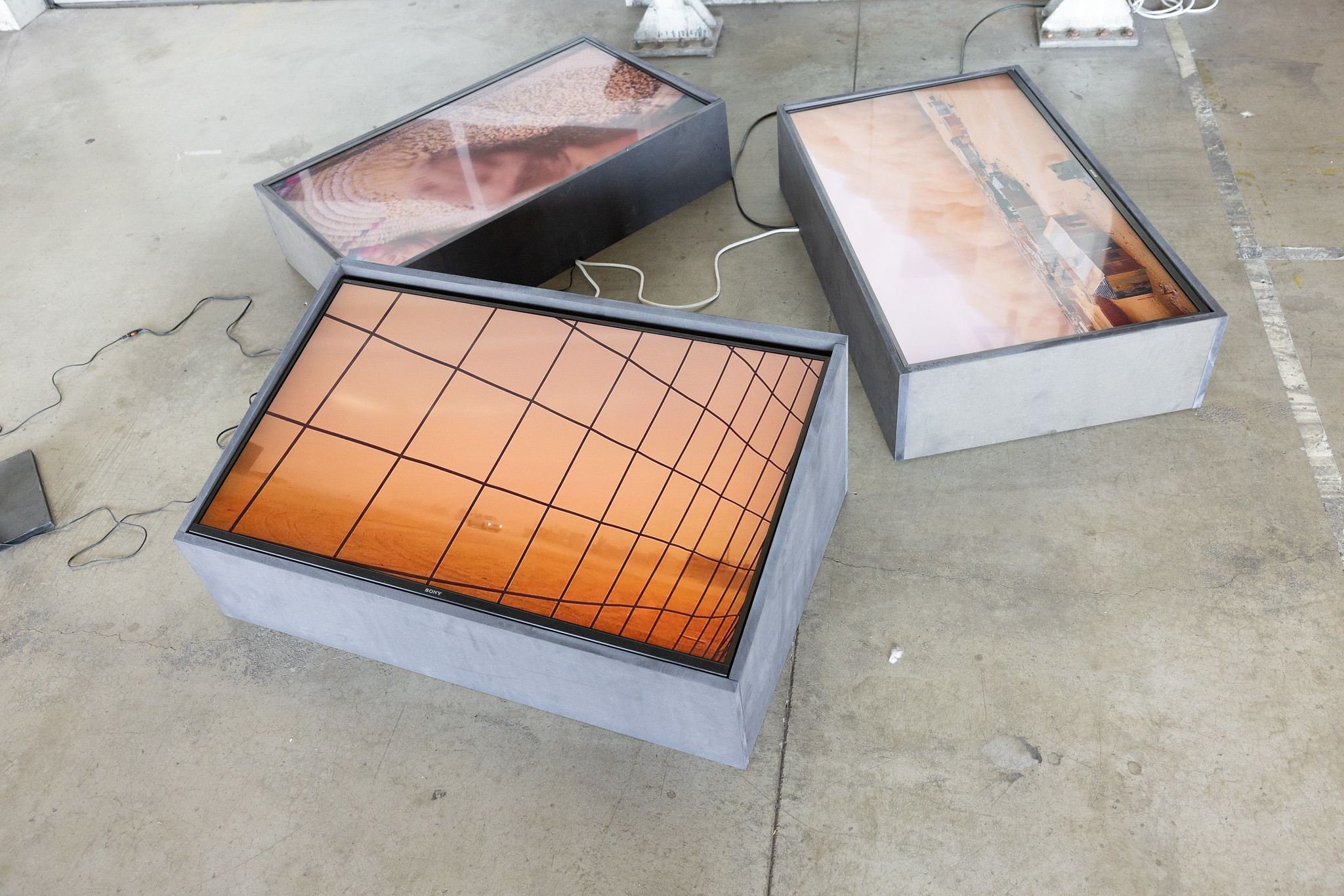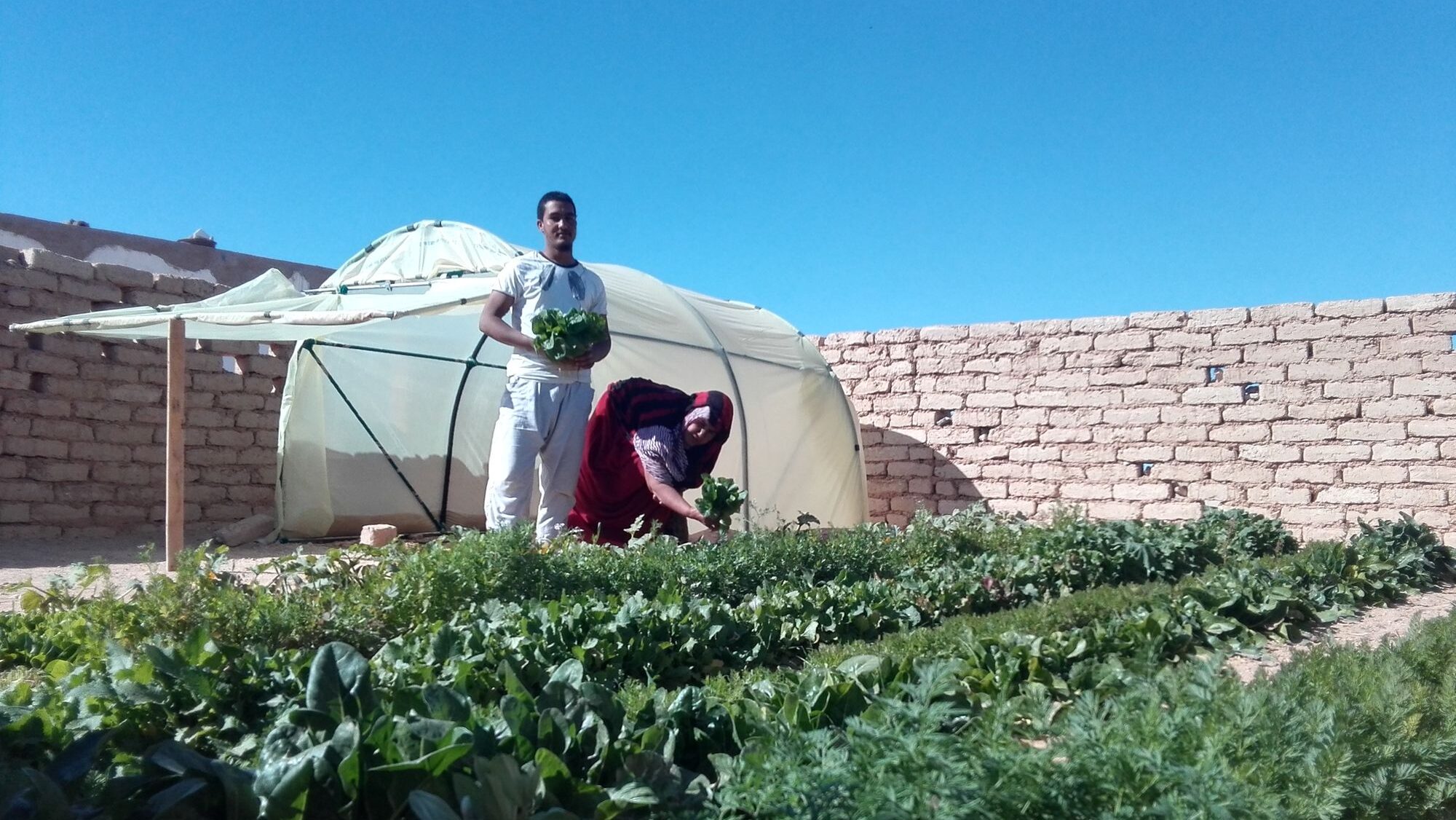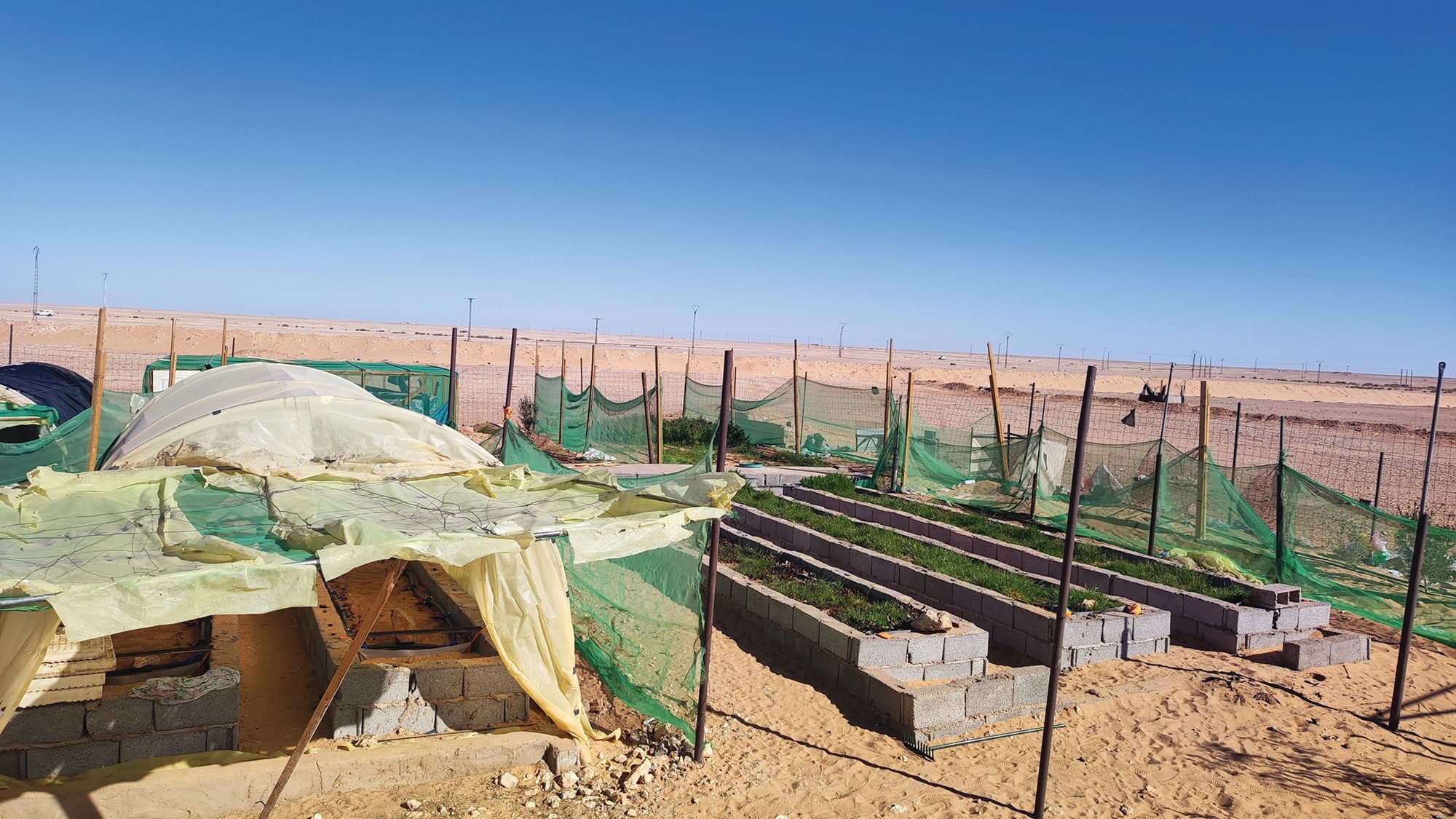Sand Gardens are gardens developed in the Sahrawi refugee camps in southwest Algeria. We use sand as the medium to grow vegetables in a very challenging desert environment. By containing sand in a plastic film, we can recycle water in the same system. Sand grains with slightly bigger diameter help the water penetrate faster through the soil. Developing such Sandoponic gardens is done primarily to help the Saharawi families access nutritional food locally. The Sahrawi refugees depend on food aid whose nutritional value is limited. The Sandoponic gardens save up huge amounts of water. Sahrawi agricultural engineer Taleb Brahim is leading the family gardens movement. His experimentation allowed such low-tech interventions to be accessible and replicable. Sand Gardens shows how local solutions and knowledge from scientists, artists, farmers and community members can bring forward concrete solutions. Sand Gardens is an art installation consisting of different video monitors planted in sand.
Bio
-

Mohamed Sleiman Labat
EH
Mohamed Sleiman Labat is a Sahrawi multidisciplinary artist, filmmaker, writer and translator. Born and raised in the Sahrawi refugee camps in southwest Algeria, he now runs Motif Art Studio; a small art space built entirely from discarded materials from the destructive floods that hit the Tindouf refugee camps in 2015. His art draws upon the past and present of the Sahrawi people. He explores these interconnected topics through different art practices including film, writing and community-based art.
Credits
Motif Art Studio Algaada Centre for Small Scale Farming and Agricultural Research
The film DESERT PHOSfate is part of the PHOSfate Artistic Research Project together with Pekka Niskanen, funded by Kone Foundation, Osker Öflunds Stiftelse, and Arts Promotion Centre Finland.
Presented in the context of the STARTS4Africa project. STARTS4Africa has received funding from the European Commission’s Directorate-General for Communications Networks, Content and Technology under grant agreement No. LC-01960720.




